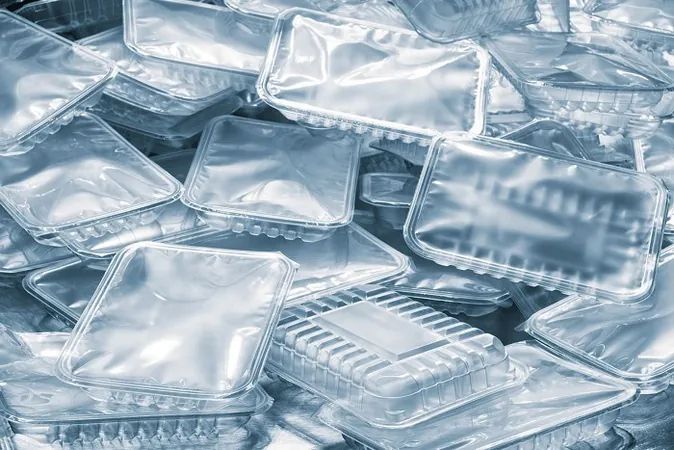
Alarming Discovery: Toxic Compounds from Food Packaging Found in Human Blood
2024-09-25
Alarming Discovery: Toxic Compounds from Food Packaging Found in Human Blood
Recent studies have unveiled a shocking reality: hazardous chemicals from food packaging are infiltrating the human body. With nearly all groceries wrapped in some form of packaging—be it plastic, metal, or cardboard—this research raises significant health concerns. A comprehensive analysis conducted by the Food Packaging Forum has detected over 3,600 food contact chemicals in human blood samples originating from large biomonitoring initiatives.
Among these troubling findings, around 200 of the identified chemicals are suspected mammary carcinogens, with 76 of them confirmed in human samples. Alarmingly, 40 of these have already been classified as hazardous by various regulatory bodies. Jane Muncke, managing director of the Food Packaging Forum and co-author of the studies, emphasized the strong correlation between these chemicals and their potential impact on human health, stating, “While we cannot definitively prove that the chemicals in human samples came from food packaging, the evidence suggests a compelling link.”
The research not only focuses on the well-known offenders like phthalates and PFAS but seeks to shine a light on lesser-known chemicals that might pose risks. The forum had curated a vast database of over 14,000 food contact chemicals, which was then meticulously compared with biomonitoring data for this groundbreaking research.
Among the less familiar substances found are synthetic phenolic antioxidants, such as 2,4-di-tert-butylphenol, and oligomeric compounds, which have been linked to carcinogenic properties. Muncke expressed concern over the current testing practices, noting that typically only the monomeric forms of these substances are assessed for toxicity, despite indications that the leachates—oligomers—could be far more harmful.
The implications of these findings cast a dark shadow over commonly used substances, including numerous bisphenols, phthalates, and styrene, all associated with higher cancer risk. Muncke reported that the classification of these chemicals as toxic was informed by a novel assessment method, deviating from traditional chemical risk evaluations.
Experts are sounding the alarm. Martin Wagner, a toxicologist at the Norwegian University of Science and Technology, commented, "The widespread nature of human exposure to these chemicals is indeed a major red flag." He stated that many of these compounds, even in low concentrations and as part of mixtures, can pose serious health risks.
Consumers might feel betrayed by current regulations. “Our regulators don’t have our back,” Muncke asserted, expressing her frustration towards the safety measures that are failing to protect individuals from these hazardous substances. Her shopping habits have shifted dramatically; she now consciously avoids items like Teflon-coated cookware, plastic utensils, and metal cans, which are known to leach chemicals into food.
While it's challenging for consumers to completely sidestep these toxins, experts advise minimizing processed food consumption and refraining from heating food in plastic or metal containers, as these practices may exacerbate leaching issues.
This research serves as a crucial reminder of the hidden dangers lurking within everyday food packaging. With new data confirming the perilous presence of toxic chemicals in our systems, the time for change is now. Are you ready to rethink your grocery choices?



 Brasil (PT)
Brasil (PT)
 Canada (EN)
Canada (EN)
 Chile (ES)
Chile (ES)
 España (ES)
España (ES)
 France (FR)
France (FR)
 Hong Kong (EN)
Hong Kong (EN)
 Italia (IT)
Italia (IT)
 日本 (JA)
日本 (JA)
 Magyarország (HU)
Magyarország (HU)
 Norge (NO)
Norge (NO)
 Polska (PL)
Polska (PL)
 Schweiz (DE)
Schweiz (DE)
 Singapore (EN)
Singapore (EN)
 Sverige (SV)
Sverige (SV)
 Suomi (FI)
Suomi (FI)
 Türkiye (TR)
Türkiye (TR)